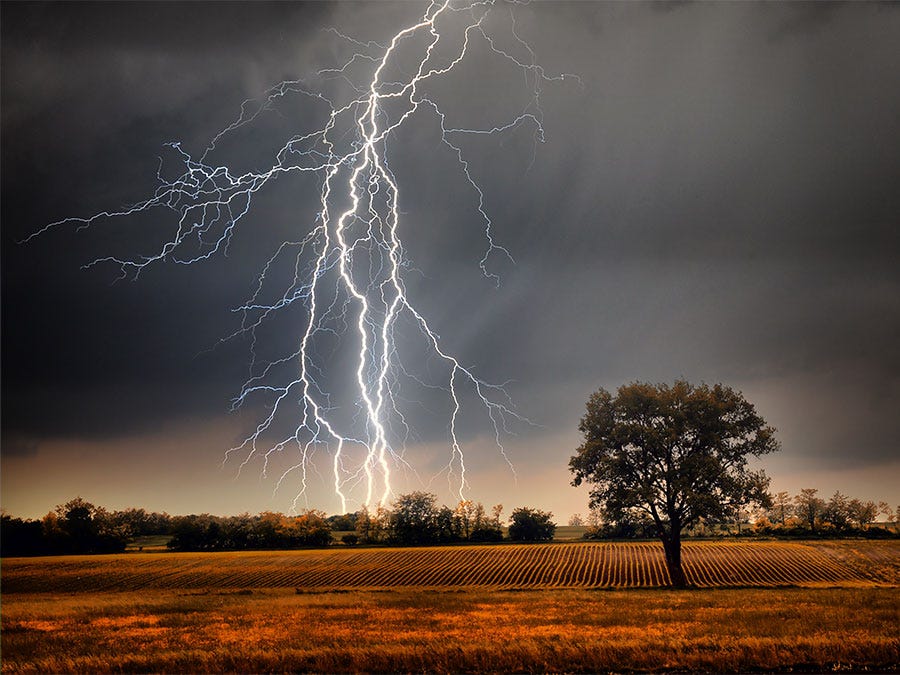Welcome to our 4 new readers of the Scuttlebutt! If you aren’t subscribed and are looking for actionable finance and business knowledge weekly, join us!
Hello and happy Monday 👋🏼
Have you ever considered what it takes to get lucky? No not that way - like true genuine luck. Depending on who you ask, you’ll get a variety of answers on luck. Some people don’t think it exists while others believe luck is an active force beyond control at work in our lives every day. I tend to fall somewhere in between; I believe it exists but that luck is a derivative of our actions and therefore we can control it.
The Four Kinds Of Luck
The inspiration for these ideas around luck comes from the book Chase, Chance, and Creativity. The author, James Austin, is a neurologist who writes on understanding the brain, how we process creativity and extensive writing on meditation. If you’re interested in his work, you can learn more about him here.
Austin theorized that there are four kinds of luck, or chance, which he defined as “something fortuitous that happens unpredictably without discernable human intention.” He goes on to explain that there are random chance happenings but we ought to be careful to distinguish those from the other three kinds, all of which we influence in some way.
Blind Luck
Blind luck is true random chance. Something that is accidental and not influenced in any way shape or form by yourself. Things like this would include things like being struck by lightning or a meteor in the middle of town. I put in town just to emphasize the idea that you aren’t influencing the outcome. Naturally, if you go stand on top of the tallest mountain and wait for a storm, you’re stacking the probability.
“Chance I is completely impersonal; you can't influence it.”
Motion Luck
The second kind of luck takes blind luck and adds motion or activity to it. You essentially “stir the pot”, introducing things into your life or routine that weren’t there before. This could look like stopping a random person to talk to them, calling an old friend, applying for a job outside of your field - anything that would be considered outside of a traditional routine. Motion yields new combinations that lead to opportunities or people you wouldn’t have otherwise experienced. This may be considered lucky but came as a result of your activity.
“Chance II favors those who have a persistent curiosity about many things coupled with an energetic willingness to experiment and explore.”
Spotting Luck
The third type involves the first two with a personal requirement. Spotting luck is where an individual with unique knowledge or experience is able to identify an opportunity that the average person may not see. The opportunity could be anything that offers some form of personal or financial gain but comes only to that person because of the knowledge required. For example, right now lumber is incredibly expensive due to surging demand as well as a supply shortage. A person in the lumber industry last year could have noticed that not as many boards were being cut at the sawmill. A person in that industry that recognized the problem could have stockpiled lumber to sell later at a greater price or some similar idea. Unique knowledge and recognition of the opportunity brought about a “lucky” event for that person.
“Chance III favors those who have a sufficient background of sound knowledge plus special abilities in observing, remembering, recalling, and quickly forming significant new associations.”
Personal Luck
The last type of luck is particular to an individual person in the same way as spotting luck, but the opportunities come to the person because of who they are or what they do. If you are known for something in particular then opportunities regarding what you’re known for will come as a result. The modern-day philosopher Naval gave the following example:
Let’s say you are the best person in the world at deep-sea underwater diving. And you’re known to take on deep-sea underwater dives that nobody else will even attempt to dare. And then, by sheer luck, somebody finds a sunken treasure ship off the coast they can’t get at - well their luck just became your luck because they’re going to come to you to get that treasure and you’re going to get paid for it.
In this example, the person who found the treasure ship experienced the first or maybe second kind of luck. The person going to make the dive experienced something much different, however. Because of their known ability for doing dives, the opportunity came to them. The unique skillset and knowledge brought that on, nothing else.
“Chance IV favors those with distinctive, if not eccentric hobbies, personal lifestyles, and motor behaviors.”
Understanding Luck
What I find interesting about these four kinds of luck is that each boils down to some combination of preparation and opportunity:
• Blind - No preparation or opportunity, but on a long enough timeline something happens
• Motion - No preparation, but creating opportunities by stirring things up
• Spotting - Some preparation through your own understanding and some opportunity created through motion or time
• Personal - Maximum preparation through specializing and maximum opportunity by being public and allowing people to know about what you do
You want the last form of luck, the personal kind. The kind where opportunities come to you because of who you are. You create opportunities through your preparation. The catch is that preparation and opportunity are constantly eroding. Both require continuous work; preparing yourself through learning and understanding while simultaneously exposing yourself to new opportunities.
Money & Luck
With the understanding that luck requires both preparation and opportunity, is money about being lucky? With the right definition of luck, I think it is. Here’s mine:
Luck = Preparation x Opportunity
When it comes to your money, it’s all about luck. Preparation and opportunity create a financial barbell that will bring you the most luck of all.
Preparation
What does preparation look like when it comes to your money? Preparation is about being diligent, not taking unnecessary risks, and being ready for the worst-case scenario. One of my favorite lines I hear is complaints about car breakdowns and how “unlucky” they were to have that happen. Did you think your car would run forever? Of course not. But was anything done about it? Unlikely.
Emergency car repair is something that maybe seems unlucky at the time, but it’s really a test of your preparation. You know your car will break down or will need a new car eventually and therefore money should be set aside every month to prepare for that. Then what that event happens, you’re ready for it. Using money set aside for an emergency event like this is not a punishment, it’s a reward. It means you don’t have to go into debt for something unexpected.
Preparation also involves learning a skill or becoming proficient at something. Having expertise in an area opens you up as a resource to others. A combination of your interests, experience, and skillset makes you uniquely qualified for something valuable that other people want and need. Understanding that value prepares you for other ways to make money like a side hustle or a more lucrative career. If and when an opportunity presents itself, adequate preparation allows you to act.
Opportunity
Opportunity is all about exposure to the upside. The greater extent to which you are prepared, the more opportunities you will be able to take advantage of. When your day-to-day finances are taken care of and you have an adequate safety net, you are able to invest more aggressively without fear of not being able to pay your power bill. Contributing more money to your retirement account or perhaps buying a second home at an opportune time are opportunities you have when fully prepared.
Aside from investing, opportunities can come in the form of talking with people and being public about what you do. In preparation I talked about learning and practicing a skill - people should know what you’re good at! Writing this newsletter is a way for me to share my passion for finance with other people. It has opened doors to allow me to help people with their finances. In the same way, something you love to do can become a way for you to add value to other people’s lives. Don’t hide it!
Takeaways
• True luck is self-made using a combination of preparation and opportunity
• Financial preparation comes from saving and strong personal financial management. Life preparation comes from learning valuable skills and specializing.
• Financial opportunities come when you have leftover money to invest at opportune times for your future. Life opportunities come from being public about what you’re good at.
• Life is not random. Prepare yourself, create opportunities, and strike when the time is right.
I hope you’ve found this week’s issue interesting, entertaining, or helpful. If you did, I’d love it if you share it with someone you think would enjoy it as well. As always, if you have specific questions on finance, investing, or anything else, reply to this email or comment on the post. I love doing request articles!
Talk next week.
~Brock









Good stuff, thanks Brock!
wow Brock, You just opened my eyes